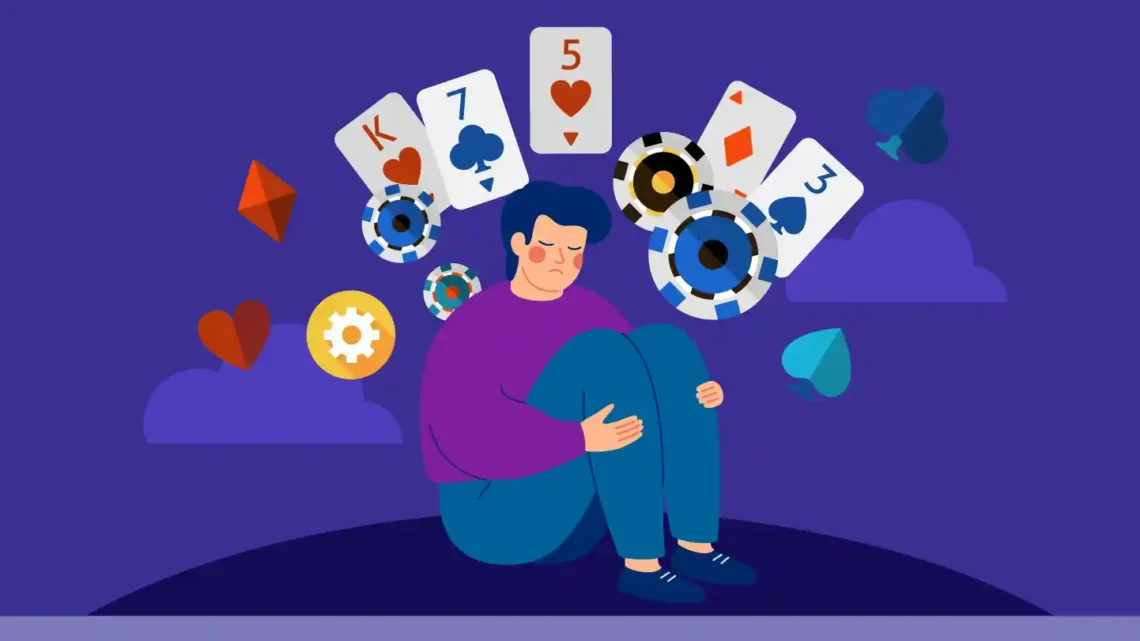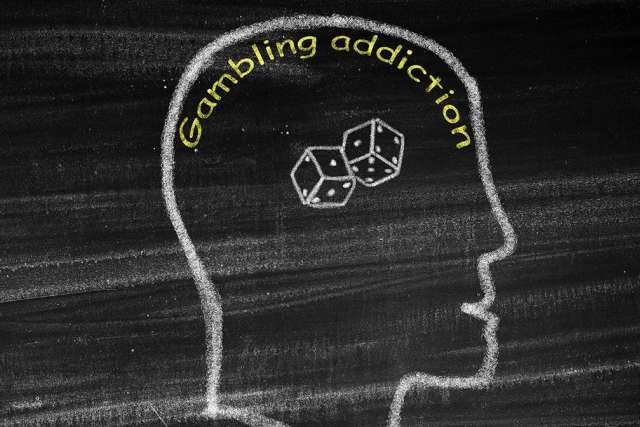
Understanding Therapy for Gambling Addiction
Gambling addiction, also known as compulsive gambling or gambling disorder, is a serious and often debilitating condition that affects millions of people worldwide. It manifests as an uncontrollable urge to gamble despite the adverse consequences, which can lead to severe financial, emotional, and social repercussions. Addressing this addiction requires a multifaceted approach, with therapy playing a crucial role in helping individuals regain control of their lives. This blog explores the various therapeutic methods used to treat gambling addiction, shedding light on their effectiveness and the support they provide.

gambling addiction
The Nature of Gambling Addiction
Gambling addiction is characterised by a persistent and recurrent pattern of gambling behaviour that disrupts personal, family, and occupational functioning. Individuals with this disorder often experience intense cravings, may lie to conceal their gambling habits, and continue to gamble despite the knowledge of negative consequences. This behaviour is driven by a complex interplay of psychological, genetic, and environmental factors, making it essential to approach treatment from multiple angles.
Cognitive Behavioral Therapy (CBT)
Cognitive Behavioral Therapy (CBT) is one of the most widely used and effective treatments for gambling addiction. CBT focuses on identifying and altering negative thought patterns and behaviors associated with gambling. Through structured sessions, individuals learn to recognize irrational beliefs, such as the illusion of control or the idea of a “lucky streak,” and replace them with healthier, more realistic thoughts. CBT also helps individuals develop coping strategies to manage cravings and avoid triggers, empowering them to make more informed decisions and reduce the urge to gamble.
Motivational Interviewing (MI)
Motivational Interviewing (MI) is another therapeutic approach that emphasises enhancing an individual’s motivation to change their gambling behaviour. Unlike traditional therapy methods that may confront or challenge the individual, MI adopts a collaborative and empathetic stance. Therapists work with individuals to explore their reasons for gambling, the impact it has on their lives, and their personal goals for change. By fostering a supportive and non-judgmental environment, MI helps individuals build intrinsic motivation and commitment to overcoming their addiction.
Gamblers Anonymous (GA)
Gamblers Anonymous (GA) is a 12-step program modelled after Alcoholics Anonymous. It provides a supportive community for individuals struggling with gambling addiction, offering a platform for sharing experiences and receiving support from others facing similar challenges. GA meetings often focus on personal stories, mutual encouragement, and the application of the 12-step principles, which include acknowledging the problem, seeking help, and making amends. For many individuals, GA serves as a valuable complement to professional therapy, offering a sense of belonging and accountability.
Family Therapy
Gambling addiction does not only affect the individual but also impacts their family and relationships. Family therapy addresses these broader effects by involving family members in the treatment process. The goal is to improve communication, resolve conflicts, and rebuild trust within the family unit. Family therapy can help loved ones understand the nature of the addiction, learn how to provide appropriate support, and work together to create a healthier, more supportive environment for recovery.
Integrating Therapy with Support Services
In addition to therapy, individuals struggling with gambling addiction may benefit from integrating support services into their recovery plan. This can include financial counselling to address the economic impact of gambling, support groups for sharing experiences and advice, and educational resources to raise awareness about the risks and effects of gambling addiction.
Creating a Recovery Plan
Developing a personalised recovery plan is crucial for overcoming gambling addiction. This plan should include therapeutic goals, coping strategies, and a network of support. Regularly attending therapy sessions, setting realistic goals, and tracking progress are essential components of a successful recovery journey. Additionally, identifying and avoiding triggers, such as specific gambling environments or stressors, can help prevent relapse.
What are the most common signs of gambling addiction?
The most common signs of gambling addiction include a persistent and escalating urge to gamble, often despite negative consequences. Individuals may experience frequent and intense preoccupation with gambling, including planning and fantasising about future gambling activities. They might continue to gamble even when facing significant financial difficulties, such as accumulating debt or borrowing money to fund their gambling. Another key indicator is the increasing amount of time spent gambling, to the detriment of personal and professional responsibilities. Relationship problems, such as frequent conflicts or secrecy about gambling activities, also signal a potential issue. Additionally, individuals may exhibit a tendency to gamble as a means of escaping stress, anxiety, or depression, and may experience irritability or restlessness when unable to gamble. Recognizing these signs early on is crucial for seeking help and addressing the addiction effectively.
What are some strategies for preventing relapse in individuals recovering from gambling addiction?
Preventing relapse in individuals recovering from gambling addiction involves a multi-faceted approach that focuses on managing triggers, building a supportive network, and developing coping strategies. One key strategy is identifying and avoiding common triggers or situations that may lead to a relapse, such as frequenting places where gambling occurs or associating with individuals who gamble. Establishing a strong support network, including therapists, support groups, and family members, provides emotional support and accountability. Developing healthy coping mechanisms, such as engaging in alternative activities or hobbies, can help individuals manage stress and cravings. Additionally, setting clear, achievable goals and regularly reviewing progress helps maintain motivation and focus. Utilizing financial management tools and seeking financial counselling can also help address financial issues related to gambling. By combining these strategies, individuals can strengthen their recovery and reduce the risk of relapse.